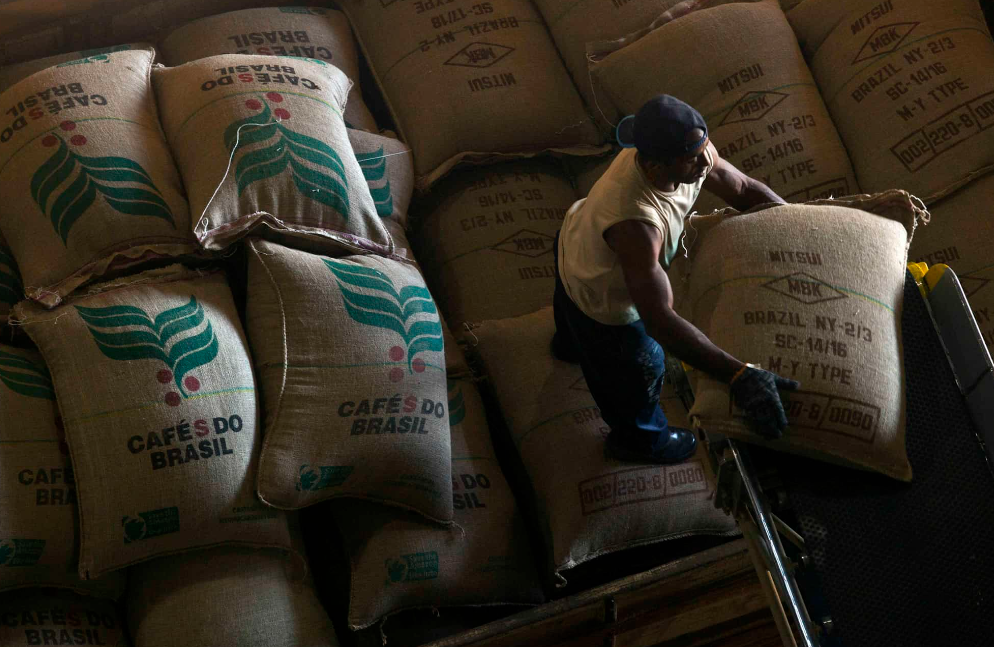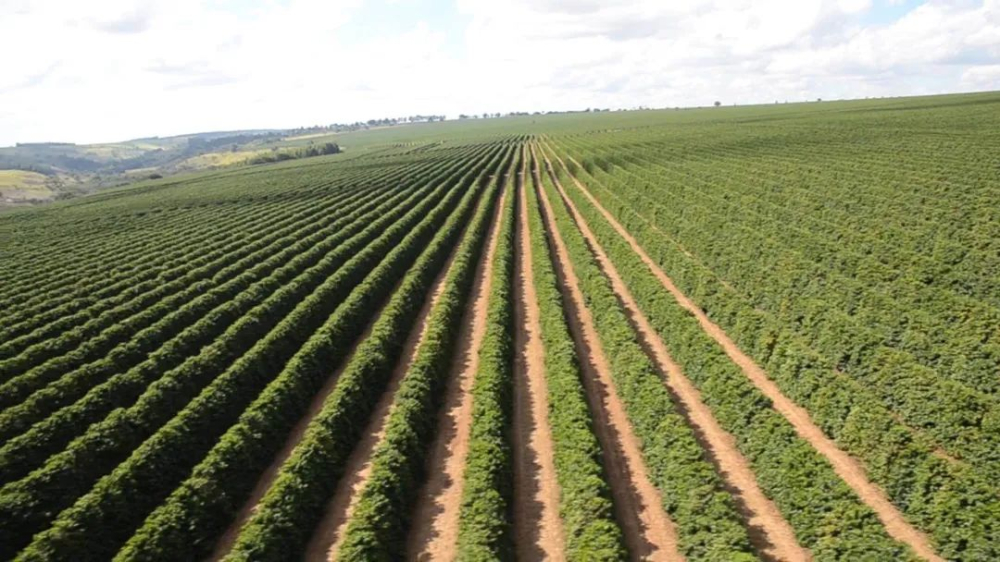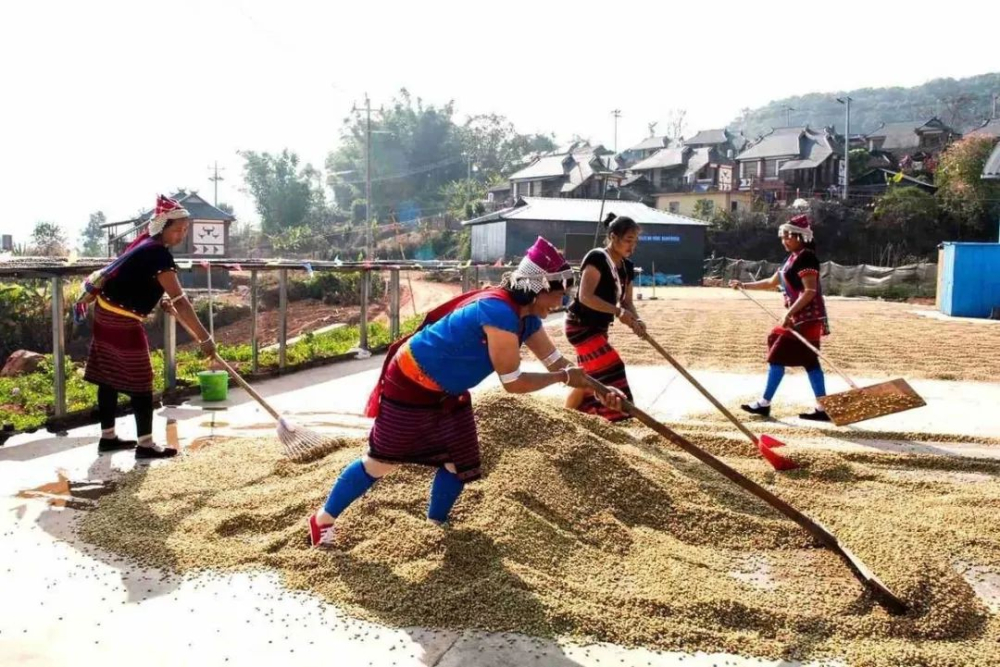The price of coffee is still going up?! Coffee stocks in Brazil are at an all-time low
Professional coffee knowledge exchange more coffee bean information please follow the coffee workshop (Wechat official account cafe_style)
For more boutique coffee beans, please add private Qianjie coffee on Wechat. WeChat account: qjcoffeex
With the imbalance between supply and demand in the global coffee market, coffee stocks in Brazil, the world's largest coffee producer, are at an all-time low! Given the situation in Brazil, the global coffee supply is tight or will continue to face serious challenges.
Recently, according to the Coffee Finance Network, after completing four surveys, CONAB, the national commodity supply company under the Brazilian Ministry of Agriculture, determined that the total output of Brazilian coffee in 2022 in 23 was 50.92 million bags (60 kg each), an increase of 6.7% over the same period last year. However, Brazilian coffee stocks are expected to be only 540000 bags by the end of 2021 / 2022, down 88 per cent from the same period last year and the lowest level since inventory records began in the 1960s. After increasing production, Brazil will use some of its coffee to rebuild its stocks, so coffee production is not used for direct exports.

According to the latest report from the United States Department of Agriculture, Brazilian coffee exports are expected to be 36.65 million in 2022 and 23, the lowest since 2017. In 2021, Brazil experienced extreme weather during the harvest season, including drought and frost, resulting in a year-on-year decline in production of nearly 20 per cent, so more stocks were filled.
This year, Brazil's Robusta coffee production increased 11.7 percent year-on-year to 18.2 million bags, but continued to be affected by drought and frost adverse weather, resulting in Brazil Arabica coffee bean production still failed to maximize production. Arabica, with a total production of 32.72 million bags, is also far below the market's expectation of 48.7 million bags.
According to public data, coffee cultivation in Brazil totaled 2.23 million hectares, while the state of Minas Gerais, Brazil's largest coffee producing region, this year saw a 0.8 per cent year-on-year drop in coffee production to 22 million bags and 4.6 per cent to 21.6 bags per hectare.

For a long time, Brazilian Arabica coffee has a slightly bitter flavor of cream, nut, chocolate and caramel, but it tastes smooth and smooth, so that even people who taste it for the first time will easily accept it, so the market acceptance of this variety is also the highest. Brazilian Arabica coffee accounts for about 80% of the total production, but this year's Arabica production has not reached the expected output. So the shortage of supply may not be alleviated yet.
Vietnam, the world's second-largest coffee producer, is also declining rapidly. According to the median of a media survey of market traders, Vietnamese coffee stocks will have halved by the end of September compared with the same period last year. Vietnam is a major producer of Robusta, the world's largest coffee variety in demand.
In this way, the inventory of the two major coffee varieties grown in the world is decreasing, but the demand for coffee is increasing. Coupled with the fact that the global economy is gradually recovering from the epidemic, more coffee will be needed after that. Today's coffee market has the biggest supply gap in recent years, and there is a serious imbalance between supply and demand.

CONAB, the national commodity supply company under the Brazilian Ministry of Agriculture, pointed out that the conversion rate of fresh coffee fruits to raw coffee beans in Brazil this year is lower than in previous years, which may also be one of the main reasons for the shortage in the market.
Brazil, as the largest producer and exporter, accounts for 1/3 of the world's total coffee output and is an important core of the global coffee market. Changes in the country's production and supply will directly affect the global coffee supply. Supply shortages may continue to worsen, promoting the behavior of international coffee consumption giants to continue to raise coffee prices.
Photo Source: Internet
Important Notice :
前街咖啡 FrontStreet Coffee has moved to new addredd:
FrontStreet Coffee Address: 315,Donghua East Road,GuangZhou
Tel:020 38364473
- Prev

Does Starbucks want to update its membership reward program?! More stars will be exchanged for coffee
Professional coffee knowledge exchange more coffee bean information please follow the coffee workshop (Wechat official account cafe_style) more boutique coffee beans please add private Wechat Qianjie coffee, WeChat: qjcoffeex recently, a number of foreign media reported that Starbucks will be in the new year to its Starbucks club members
- Next

After "tasting coffee"! TVB Chen Hao once again hosts a coffee program to introduce boutique coffee!
Professional coffee knowledge exchange more coffee bean information please follow the coffee workshop (Wechat official account cafe_style) more boutique coffee beans please add private Wechat Qianjie coffee, WeChat account: qjcoffeex "for me, coffee is blood, is a part of the body. "--A recognized coffee in the entertainment industry.
Related
- Workers collapse! Lucky suspects that it will introduce freshly cut fruits?!
- 1-point subsidy recipients wear thousand-yuan watches?! Local response: For low-income households
- Can lightly roasted coffee beans be used to extract espresso? How finely should you grind high-quality coffee beans to make Italian latte?
- What is the difference between the world's top rose summer coffee and Yejia Shefi? What are the flavor characteristics of Yega Shefi coffee and Panama rose summer?
- The ceremony is full! Starbucks starts to cut the ribbon at a complimentary coffee station?!
- A whole Michelin meal?! Lucky launches the new "Small Butter Apple Crispy Latte"
- Three tips for adjusting espresso on rainy days! Quickly find the right water temperature, powder, and grinding ratio for espresso!
- How much hot water does it take to brew hanging ear coffee? How does it taste best? Can hot water from the water dispenser be used to make ear drip coffee?
- What grade does Jamaica Blue Mountain No. 1 coffee belong to and how to drink it better? What is the highest grade of Blue Mountain coffee for coffee aristocrats?
- What are the flavor characteristics of the world-famous coffee Blue Mountain No. 1 Golden Mantelin? What are the characteristics of deep-roasted bitter coffee?

